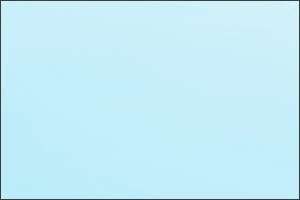Breastfeeding, Fundament of life, Starting week of Brestfeeding 2021
In Nepali society, which is living on a minimal basis, there are many types of shame and bullying, and there is a persistent dictionary for such shame and bullying, such as physical shame, social shame, the shame of gender choice, the shame of caste or religion, shame of infertility even in the changed perspective of the new millennium.
Today I would like to discuss a shame that is felt not only in Nepal but in all parts of the world, cities, and villages, the shame of breastfeeding a child. There is no victory in this shame and if women do not have children, they are ridiculed more than men.
It is also considered ridiculous to take care of a child outside the home, especially if you are breastfeeding your baby in a public place. Tragic things happen if you are a woman but for various other reasons such as non-availability of breast milk or due to office hours or any other reason a woman not being able to breastfeed her baby and should be fed milk from other sources or nutritious food or formula. In such a situation, mothers are made very ashamed in society.
While it is considered normal for people to urinate on the side of the road, it is a matter of ridicule and shame for women to take care of their babies according to their circumstances or settings.
This society has made it a very private and secret subject for us for centuries. It is not a secret because raising a baby is not a crime and taking care of a baby as a mother is a matter of pride for all mankind.
Due to these and similar various thoughts and evil practices, the time of motherhood is becoming awkward and uncomfortable. Its duty to make it easier for mothers to lead a normal life during motherhood?
This does not mean that mothers should walk in public showing their breasts, but many public places such as airports, bus stands, and many well-known international restaurants, shopping malls do not have safe, quiet, and clean places for breastfeeding.
And if mothers find it difficult to breastfeed their babies in a public place or do not find a place to breastfeed their babies, or who will calculate the impact and opportunity cost upon the newer generation of not breastfeeding?
How sensitive is our society when health sciences and nutritionists are talking about breastfeeding for at least the first two years? There is also the misconception that breastfeeding affects the beauty and there are mothers who do not breastfeed their babies.
There seems to be a lot of work to be done to make breastfeeding a normal activity and to socially acknowledge its importance. Now that World Breastfeeding Week is being celebrated from August 1 to 7, these things are also addressed.
This day has been celebrated since 1992. In previous years, the slogan of this week was focused on a health structure, working women, advocacy for a breastfeeding-friendly environment in the workplace. Since 2016, breastfeeding has also been linked to sustainable development goals.
World Breastfeeding Week is celebrated in more than 120 countries around the world. The slogan of this year's Breastfeeding Week is Breastfeeding, Foundation of Life. This means that we should move forward by considering breastfeeding as the basis of life.
World Breastfeeding Week is celebrated every year from 1 to 7 August to encourage breastfeeding and improve the health of babies around the world. It commemorates the Innocenti Declaration signed in August 1990 by government policymakers, WHO, UNICEF and other organizations to protect, promote, and support breastfeeding. Good luck
-Suyog Dhakal







No comments